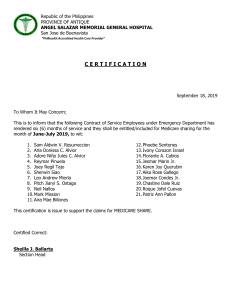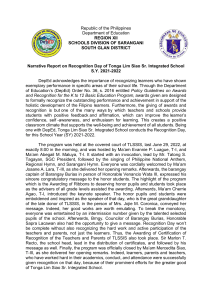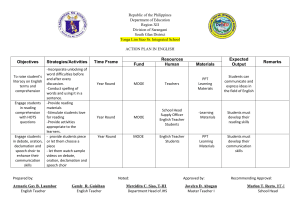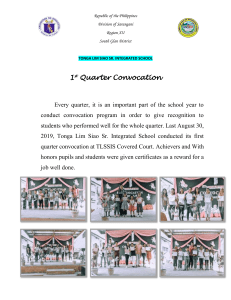ilide.info-291-yap-vs-siao-digest-pr 27b71788c044d944e8b505843d903e2f
advertisement
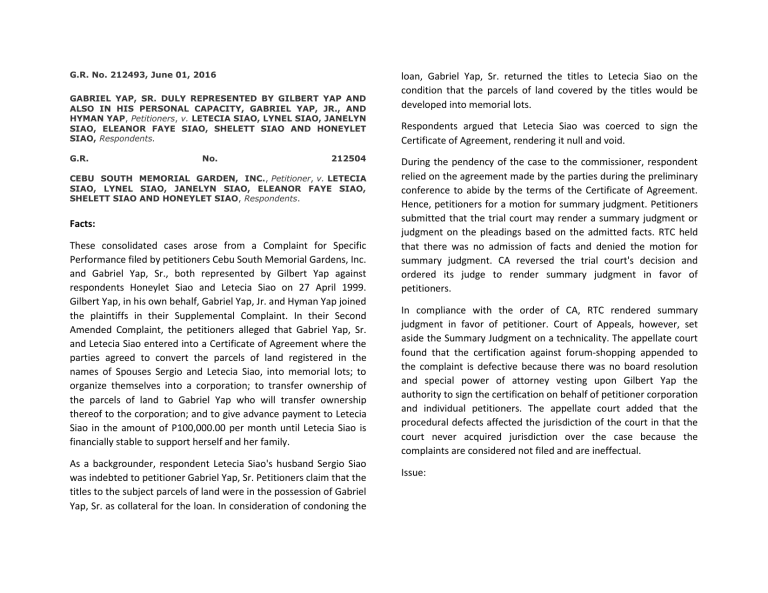
G.R. No. 212493, June 01, 2016 GABRIEL YAP, SR. DULY REPRESENTED BY GILBERT YAP AND ALSO IN HIS PERSONAL CAPACITY, GABRIEL YAP, JR., AND HYMAN YAP, Petitioners, v. LETECIA SIAO, LYNEL SIAO, JANELYN SIAO, ELEANOR FAYE SIAO, SHELETT SIAO AND HONEYLET SIAO, Respondents. G.R. No. 212504 CEBU SOUTH MEMORIAL GARDEN, INC., Petitioner, v. LETECIA SIAO, LYNEL SIAO, JANELYN SIAO, ELEANOR FAYE SIAO, SHELETT SIAO AND HONEYLET SIAO, Respondents. Facts: These consolidated cases arose from a Complaint for Specific Performance filed by petitioners Cebu South Memorial Gardens, Inc. and Gabriel Yap, Sr., both represented by Gilbert Yap against respondents Honeylet Siao and Letecia Siao on 27 April 1999. Gilbert Yap, in his own behalf, Gabriel Yap, Jr. and Hyman Yap joined the plaintiffs in their Supplemental Complaint. In their Second Amended Complaint, the petitioners alleged that Gabriel Yap, Sr. and Letecia Siao entered into a Certificate of Agreement where the parties agreed to convert the parcels of land registered in the names of Spouses Sergio and Letecia Siao, into memorial lots; to organize themselves into a corporation; to transfer ownership of the parcels of land to Gabriel Yap who will transfer ownership thereof to the corporation; and to give advance payment to Letecia Siao in the amount of P100,000.00 per month until Letecia Siao is financially stable to support herself and her family. As a backgrounder, respondent Letecia Siao's husband Sergio Siao was indebted to petitioner Gabriel Yap, Sr. Petitioners claim that the titles to the subject parcels of land were in the possession of Gabriel Yap, Sr. as collateral for the loan. In consideration of condoning the loan, Gabriel Yap, Sr. returned the titles to Letecia Siao on the condition that the parcels of land covered by the titles would be developed into memorial lots. Respondents argued that Letecia Siao was coerced to sign the Certificate of Agreement, rendering it null and void. During the pendency of the case to the commissioner, respondent relied on the agreement made by the parties during the preliminary conference to abide by the terms of the Certificate of Agreement. Hence, petitioners for a motion for summary judgment. Petitioners submitted that the trial court may render a summary judgment or judgment on the pleadings based on the admitted facts. RTC held that there was no admission of facts and denied the motion for summary judgment. CA reversed the trial court's decision and ordered its judge to render summary judgment in favor of petitioners. In compliance with the order of CA, RTC rendered summary judgment in favor of petitioner. Court of Appeals, however, set aside the Summary Judgment on a technicality. The appellate court found that the certification against forum-shopping appended to the complaint is defective because there was no board resolution and special power of attorney vesting upon Gilbert Yap the authority to sign the certification on behalf of petitioner corporation and individual petitioners. The appellate court added that the procedural defects affected the jurisdiction of the court in that the court never acquired jurisdiction over the case because the complaints are considered not filed and are ineffectual. Issue: Whether the certification against forum shopping is defective because it was signed by Gilbert Yap without a valid board resolution. –No. Ruling: In the leading case of Cagayan Valley Drug Corporation v. Commission on Internal Revenue,16 the Court, in summarizing numerous jurisprudence, rendered a definitive rule that the following officials or employees of the company can sign the verification and certification without need of a board resolution: (1) the Chairperson of the Board of Directors, (2) the President of a corporation, (3) the General Manager or Acting General Manager, (4) Personnel Officer, and (5) an Employment Specialist in a labor case. The rationale behind the rule is that these officers are "in a position to verify the truthfulness and correctness of the allegations in the petition." Bolstering our conclusion that the certification of non-forum shopping is valid is the subsequent appending of the board resolution to petitioners' motion for reconsideration. The Board of Directors of Cebu South Memorial Garden, through a Board Resolution, not only authorized the President of the corporation to sign the Certificate of Forum-Shopping but it ratified the action taken by Gilbert Yap in signing the forum-shopping certificate. Clearly, a defect in the certification is allowed on the ground of substantial compliance as in this case. Applying the above-mentioned rule, the signatures of petitioners Gabriel Yap, Jr. and Hyman Yap are not indispensable for the validity of the certification. These petitioners indeed share a common cause of action with Gilbert Yap in that they are impleaded as officers and directors of Cebu South Memorial Garden, the very same corporation represented by Gilbert Yap. At any rate, any objection as to compliance with the requirement of verification in the complaint should have been raised in the proceedings below, and not in the appellate court for the first time. The issues and arguments posed by respondents have already been passed upon and resolved by the Court of Appeals. By appealing the summary judgment, respondents are in effect asking the Court of Appeals to revisit the same issues. We cannot allow this under the principle of the "law of the case." In any case, we affirm the summary judgment rendered by the trial court, as directed by the Court of Appeals. A summary judgment is permitted only if there is no genuine issue as to any material fact and a moving party is entitled to a judgment as a matter of law. A summary judgment is proper if, while the pleadings on their face appear to raise issues, the affidavits, depositions, and admissions presented by the moving party show that such issues are not genuine. Petitioners' complaint seeks for specific performance from respondents, i.e. to transfer ownership of the subject properties to petitioner corporation based on the Certificate of Agreement. As their defense, respondents challenge the validity of the Agreement. However, respondents filed a motion for support relying on the same Agreement that they are impugning. In view of this admission, respondents are effectively banking on the validity of the Agreement. Thus, there are no more issues that need to be threshed out.


